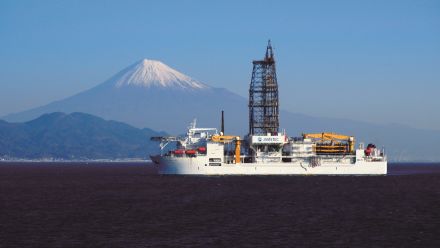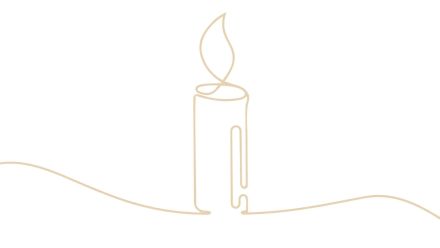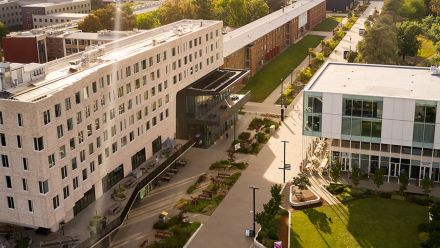The University recently conferred honorary doctorates on three leaders in the Asia-Pacific region.
Chairperson of the National League for Democracy in Burma and Nobel Peace Laureate Daw Aung San Suu Kyi
By PhD student Areti Metuamate
Aung Sun Suu Kyi has been a hero of mine since I was a young child. When I was about nine, I watched a documentary that showed Daw Suu under house arrest and I remember wondering how it would ever be possible for her to make a difference under those conditions.
On meeting Daw Suu during her recent visit to ANU, it was immediately clear to me that she was a woman of immense strength and courage and one who cared passionately about the future of her country and our world.
[youtube]bx2ELHVy8UU[/youtube]
A few of us students, both domestic and Burmese, had the privilege of sitting with Daw Suu in a round-table type discussion where we spoke about our experience at ANU and our different areas of study.
She was particularly interested in whether we saw ANU as a place that contributes to building peace. A couple of times she used the phrase 'unity out of diversity', which I commented on as being very relevant to my experience living in Toad Hall (where the motto happens to be 'Unity in Diversity'); there
are 50 different nationalities represented in our residential community of 230 or so students.
Living in a community with people who come from such a diverse range of cultures is something that, in my opinion, goes a long way to building relationships and understandings that will, in the long term, contribute to a more peaceful world.
I think Daw Suu agreed, but she was more interested, or perhaps amused, by the name Toad Hall, and asked if it was associated with the book The Wind in the Willows - which it is. It was a very interesting round-table and she ensured the conversation was engaging and direct, at one stage pressing one of our student members to explain why he had decided to study a particular topic.
Immediately afterwards we headed to Llewellyn Hall to observe the conferral of an honorary degree by ANU on Daw Suu. The hall was packed with students, staff and members of the community. I spoke with a woman who had flown in from Brisbane and a friend had also driven down from Sydney to be part of the occasion. It was quite a turnout.
Daw Suu's speech during the ceremony was powerful and clear. She received a standing ovation after her insightful and passionate comments, which appeared to be made entirely off-the-cuff.
From her speech you got a sense of the woman who has lived her life pushing for a better future for her people and country, and in the process influencing the world.
It was a real buzz to be able to engage with her during her visit and to see ANU make this connection with one of the world's most powerful advocates for a better future.
For more photos download the ANU Reporter app from iTunes.
Indonesian Tourism and Creative Economy Minister Dr Mari Pangestu
By Tegan Dolstra
Dr Mari Pangestu was giving a talk at ANU when the call came.
"I remember I was giving my speech and someone was saying 'there's a phone call, there's a phone call'. It turned out to be the phone call: I had to go back home and meet up with the president-to-be to become a minister," she says.
This was the beginning of Pangestu's decade in the Indonesian Cabinet, first as Minister for Trade from 2004 to 2011 and now as Tourism and Creative Economy Minister. As an undergraduate student at ANU in the 1970s, Pangestu had no intention of entering politics.
"I think everything happened by coincidence," she says. "I wasn't really expecting it."
The internationally respected economist and global trade expert remembers asking advice from ANU academics Ross Garnaut and Peter Drysdale, who were in the audience when the call came through.
"One of the things about ANU is that the professors that you interact with become part of your life forever. A lot of the professors that I had, even starting from first year, still remain friends, and they became colleagues.
"They influenced a lot of my work and so I said to them, 'if I was to become a minister what is your advice?'
"They said that the most important thing is public education." With that in mind, Pangestu decided to take up the offer. "As someone who had been involved with the reform movement, it was an opportunity to implement all the things that I had been recommending.
"It turns out it's not that easy," she laughs.
[youtube]9LpagA_JLU8[/youtube]
Dr Pangestu's advice to students.
Pangestu has had a long association with ANU, instigated by her father, who moved the family to Canberra to set up the Indonesia Project in 1966.
"I used to play hide and seek in the Coombs Building as a child," she recalls.
"We lived in Hughes where there was ANU housing and I went to Hughes Primary School. Then we went to Singapore for three years before I came back to Australia to finish high school at Canberra High. And then straight to ANU for my bachelor and master's degrees."
Pangestu says she was delighted to receive an Honorary Doctor of Letters from her "alma mater".
"For your own university to honour you in this way is something very special and I'm just very happy and honoured to receive it," she says.
"I think that ANU is a very august institution. A lot of its graduates have become leaders. Three ANU graduates are ministers in the Indonesian Cabinet. That's kind of a record I think."
In fact, ANU alumnus and Finance Minister Dr Chatib Basri was a student of Pangestu's in Indonesia.
"When he was deciding to go to graduate school he was debating between the US and Australia," she recalls. "And I put in a strong plug for him to go to Australia.
"And our Vice-President [Dr Boediono] also spent time at ANU. He came here for six months when he was finishing up his PhD dissertation and he was staying in Bruce Hall where I was staying."
While Pangestu claims not to have a creative streak herself, the Creative Economy Minister says her time studying overseas showed her the value of cultural exchange.
"You know when you're a student, they always have cultural performances, for International Students Day and everything. Well, I can't sing, and I can't really dance, so my job was always the MC," she laughs.
"What we call 'culinary diplomacy' or 'soft power diplomacy' is so powerful. Whether it's your food, your fashion, your film, your music, it's a really strong way to develop understanding between any two countries and a powerful way to promote your country."
These values are at the heart of Pangestu's Creative Economy portfolio, which aims to create value from existing knowledge or technology, including cultural heritage.
"For example, we identified 30 iconic Indonesian dishes which we've been promoting through our embassies all over the world," says Pangestu.
"Whenever they have an Indonesian night that's what they will serve. We also participate in the international fashion weeks, and film festivals."
In particular, Pangestu wants to see the Indonesian animation industry expand.
"A lot of our animation right now is imported. We've got 60 million children aged from 0 to 14 - that's a huge market, right? We should be able to fill that market with our own products. But first they have to be enhanced in quality."
Pangestu, whose own children are studying film and culinary arts, says the most gratifying part of her job is the contact she has with young creative minds.
"Indonesians are inherently creative," she says. "Children learn dancing and music from a very young age, so the arts are part of their way of life. But we need to nurture this talent."
With more Indonesians studying in Australia than any other foreign country, ANU also has the opportunity to nurture these young minds, the way it nurtured Pangestu.
Indonesian Vice-President Dr Boediono
[youtube]WLrgj5OK6Bk[/youtube]
An excerpt from Dr Boediono's acceptance speech.
I am very proud to be here today to receive this degree. It is now more than 40 years ago that I first arrived at ANU, to take up a position as a research assistant, but I can still clearly remember the time. It was a cold morning in July 1970 when I arrived at the Canberra airport, then a small and crowded terminal, with my wife and our baby daughter.
We were met there by Professor Heinz Arndt who had recruited me for the position. Heinz took us to his home in his light blue Ford Cortina. After we settled in for a few minutes he prepared breakfast for us, before he took us to a university flat on Canberra Avenue that he had arranged for us. He then lit a fire in the fireplace using coal briquettes that he had bought earlier. And then, later, Heinz returned with a bag of groceries for us. My wife and I have never forgotten this lesson of humility by a famous ANU professor.
For the next two years I worked in the Indonesia Project in the economics department in what was then the Research School of Pacific Studies. This was undoubtedly one of the most rewarding times in my life. There, I learned more about the working of the Indonesian economy than anywhere else at any time before. My association and my interest in the Indonesia Project and the Bulletin of Indonesian Economic Studies have continued until today.
Indonesia has undergone immense changes since the time when Heinz Arndt initiated a study group on the Indonesian economy here some 50 years ago. The Indonesian economy has grown, very slowly, by over 12 times in real terms since then. Further, according to a recent report from the McKinsey Global Institute, the Indonesian economy is on track to become the seventh largest economy in the world by 2030.
But it is not only the economy that has changed. Society has also undergone remarkable transformation. Our youthful middle class has grown rapidly, now estimated to be 74 million people with incomes totalling about US$300 billion to spend per year. A huge market for almost everything. But not less importantly, they are also a very dynamic socio-political force that will inevitably shape Indonesia's future.
As close neighbours sometimes [Australia and Indonesia] have our differences. Mutual understanding, mutual respect, mutual trust and close cooperation are critical to ensuring that as neighbours we are also good friends.
If my experience is any guide, giving our young people exposures and opportunities to understand the others' cultures and way of life will give the greatest payoff. Our young people are the best agents for developing the bridge between our two nations. Our schools and universities are probably the best conduits for their activities.
I accept with pride and with a large dose of humility the degree of doctor of letters honoris causa that The Australian National University has conferred upon me.
For more photos download the ANU Reporter app.
This article appeared in ANU Reporter magazine Autumn 2014. Subscribe for free now.


